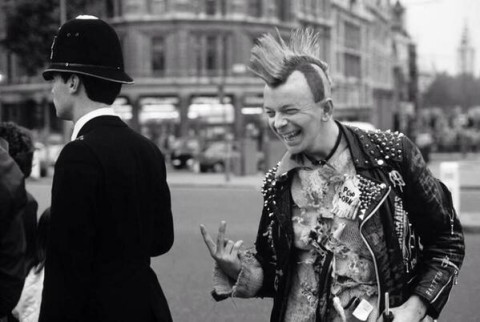For a man who’s never been elected to Parliament, Nigel Farage has been a major mover-and-shaker in British politics. In the Literary Review, Steve Richards reviews One Party After Another: The Disruptive Life of Nigel Farage by Michael Crick:
Most political figures come and go. Nigel Farage, in contrast, seems always to be around, close to the centre of the political stage. Sometimes he is leading a political party. Occasionally he is setting up a new one. Between such roles he is on television. Currently, the former leader of UKIP and the Brexit Party hosts a nightly show on GB News.
The consequences of Farage’s ubiquity have been seismic, reshaping the UK and the wider political landscape. He sought a referendum on Britain’s membership of the EU and then a hard Brexit, and ultimately got everything he wanted. The Conservative Party’s embrace of a form of English nationalism was partly a response to the threat that Farage posed. The near-silence of the Labour leader, Keir Starmer, on the subject of Brexit is a form of vindication for him. Starmer knows that Brexit is having calamitous consequences but does not dare to say so. No wonder Michael Crick concludes that “it’s hard to think of any other politician in the last 150 years who has had so much impact on British history without being a senior member of one of the major parties at the time”.
Among Crick’s admirable passions is his interest in those individuals or forces that have shaped the major political parties from outside the mainstream. He wrote an important book on Militant, the left-wing group that in the 1980s sought to infiltrate the Labour Party and for a time made life hellish for Michael Foot and Neil Kinnock, the two party leaders during that stormy decade. His biography of Jeffrey Archer, the Conservative MP who became a bestselling author and then a convicted prisoner, was revelatory. Now he has set his sights on Farage, who has never been an MP and yet has been such a prominent figure in recent years.
As Crick always does with his subjects, he has researched meticulously every twist and turn in Farage’s life. He regrets that his investigations were constrained by the pandemic. He need not worry too much. His diligence has enabled him seemingly to have unearthed every internal dispute in UKIP and the Brexit Party, along with the eccentric figures who lined up on different sides in them. The characters that emerge would fit neatly into a Dickens novel. One of the most unsavoury right-wingers to feature in the book is now an avid supporter of the Green Party, lives in Germany and is passionately opposed to Brexit – a novelistic metamorphosis. We are also reintroduced to Farage’s old friend Godfrey Bloom, a UKIP MEP and economics spokesman, who in 2013 famously hit Crick with a party conference brochure as the journalist pursued him down the street after he had made characteristically indiscreet and outrageous remarks in a speech to UKIP members.
This book is full of fights, usually between party members. We see Farage repeatedly falling out with other potential leaders. More prominent members who cannot hide their real views in public have to be admonished. Some flirt with the BNP. Even during the triumphant 2016 referendum campaign, there were two pro-Brexit camps, one led by Farage and the other by Dominic Cummings. Farage and Cummings loathe each other and their campaign groups fought bitterly for pre-eminence. This is the most striking theme of the book. UKIP and the Brexit Party, which Farage set up in 2019 to campaign for a hard Brexit, were utterly dysfunctional most of the time. They make the UK’s main political parties, all going through various existential crises at the moment, seem models of smooth, sophisticated professionalism. The amateurism extended well beyond the eccentric characters near or close to the top. Neither party offered coherent policy programmes beyond opposition to the UK’s membership of the EU.
H/T to Colby Cosh for the link.




